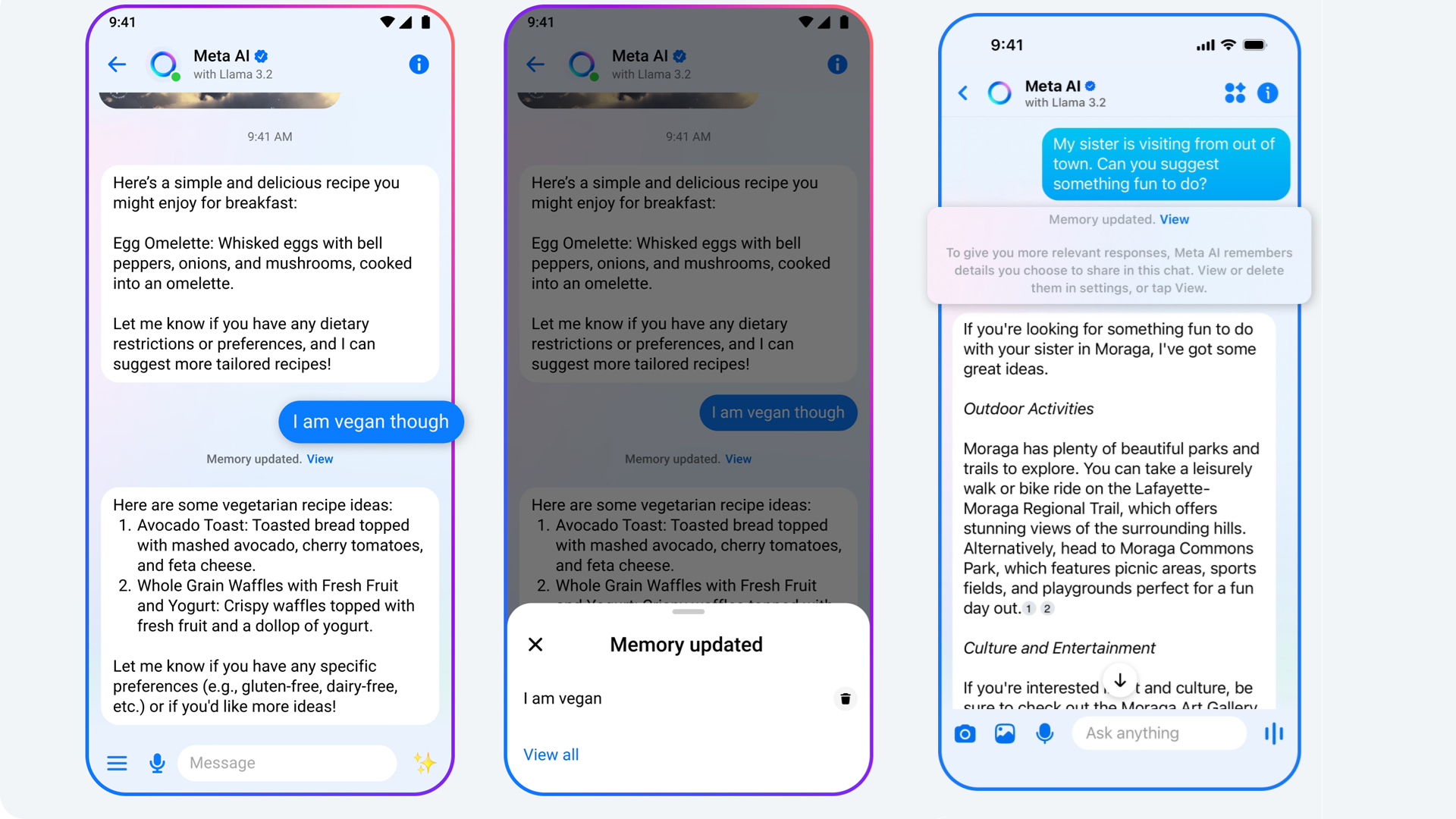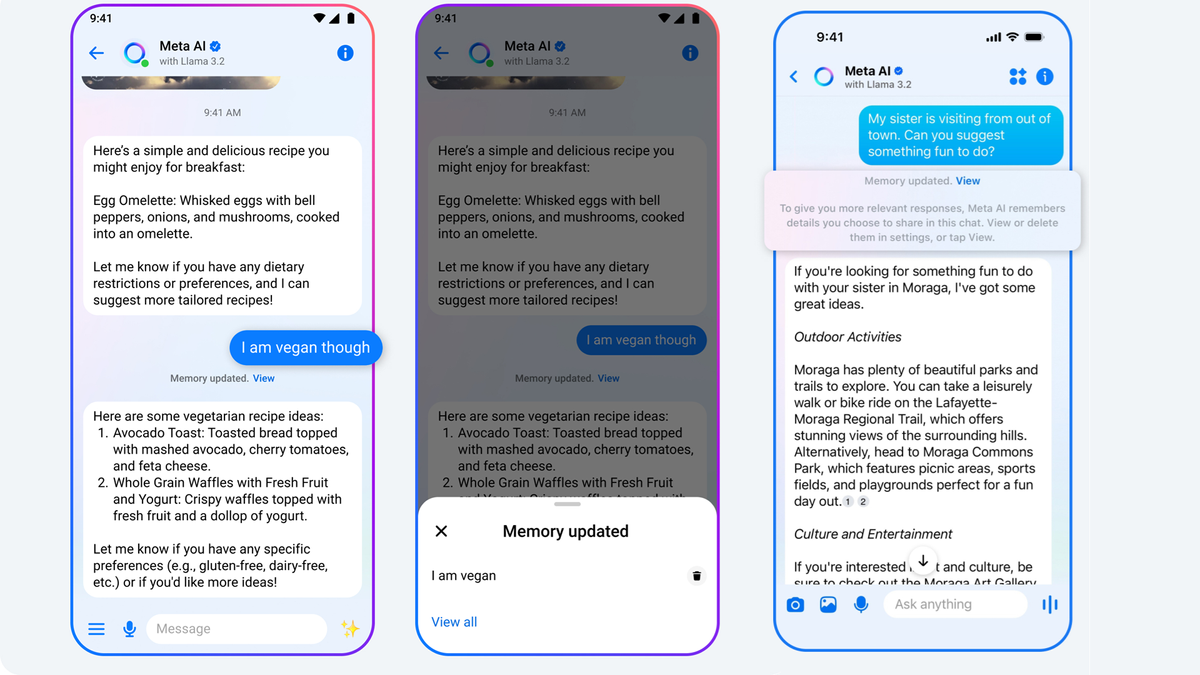
- Meta AI has added a Memory Boost feature.
- Meta AI will remember key details you share in one-on-one chats for more personalized responses.
- The AI will also use your profiles on Meta platforms to respond based on your location.
Meta AI wants to be more like your good friend who remembers all the important details about you and less like an impersonal AI chatbot. Meta is rolling out updates to its AI assistant across Messenger, WhatsApp, Facebook, and Instagram in the U.S. and Canada to do just that.
Those engaging with Meta AI may find it remembers much more about you between conversations, including some details culled from your profiles on the various connected platforms that can personalize its recommendations.
The new Memory Boost feature is pretty much exactly what it sounds like. Meta AI can now remember key details you share in one-on-one chats. Maybe you casually mention that you love hiking or that you’re fluent in Italian. Meta AI will store that tidbit in its digital brain and use it to inform future responses. A friend who remembers how you like your coffee is a good friend. Whether that same is true about an AI pal is debatable. Especially as, in this case, it’s a friend who is also keeping track of your brunch preferences, weekend plans, and which country artists you’ve been streaming.
The system is also context-sensitive, which means Meta AI doesn’t need you to spoon-feed it all the details. If you tell it you’re vegan while asking for breakfast ideas, it’ll note that for the future and stop recommending omelets or fancy frittatas. This memory feature only applies to one-on-one chats, not group conversations; you can also delete its memory whenever you want.
Personal geography
Meta AI won’t just remember your personality quirks. AI is becoming more personalized by tapping the data you share via Meta’s platforms. For instance, if you’re looking for family activities this weekend, Meta AI might suggest a local concert based on your location, your recent browsing habits, and its memory of you mentioning that you have two kids.
Of course, this level of personalization isn’t entirely new. Meta has been perfecting the art of AI-driven recommendations for years. What makes this different is the assistant’s ability to combine information from multiple sources, including your chat history, profile, and viewing habits, to deliver something relevant.
Trying to stand out by offering this much personalization makes sense as Meta tries to break through the clamor around AI assistants like ChatGPT, Google Gemini, and others. Meta’s strategy seems to be doing what it can to embed Meta AI within its existing ecosystem of platforms used by millions of people every day. After all, why would you open a separate AI app when you can just ask Meta AI directly on WhatsApp or Facebook?




